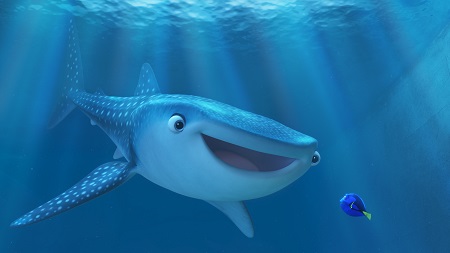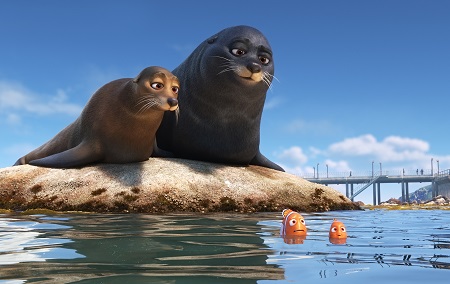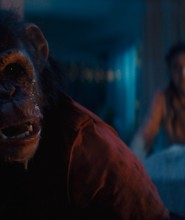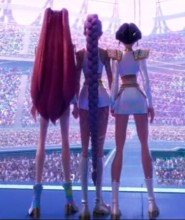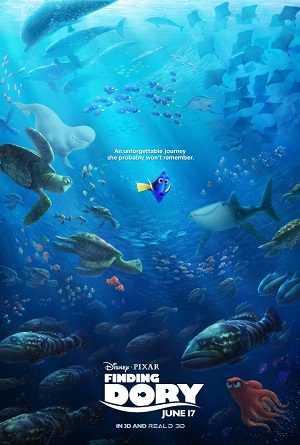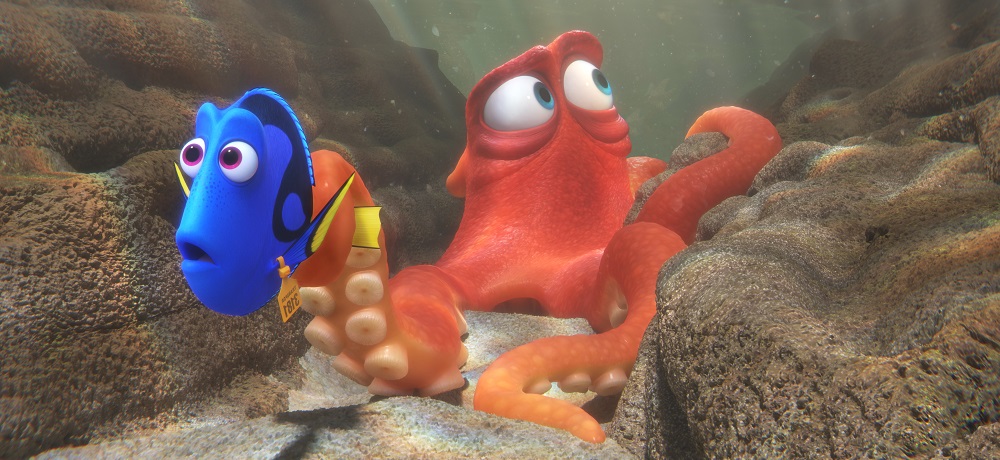
Marvelously Sincere Dory an Undersea Delight
I honestly can’t imagine a more perfect sequel than Finding Dory. Not to say it is as instantly classic or as inspirationally awe-inspiring as Finding Nemo, or to claim it should be immediately ranked within Pixar’s upper echelon of animated masterpieces. But, as a continuation of the adventure begun in its Academy Award-winning 2003 predecessor? As a thoughtful, emotionally chaste adventure that allows its central characters to evolve with authentic inspirational grace? On that front, this movie is nothing short of a miracle, returning writer/director Andrew Stanton (John Carter), his co-director Angus MacLane (“Toy Story of Terror”) and screenwriter Victoria Strouse (New Best Friend) delivering in a way that is as psychologically rapturous as it is thematically pure.
Picking up a year after a journey that took them from one end of the ocean to the other, clownfish Marlin (voiced by Albert Brooks), his son Nemo (Hayden Rolence) and forgetful bright blue tang fish Dory (Ellen DeGeneres) have settled into a fairly relaxed existence. But things take a turn when Dory has a sudden flash out of nowhere, a jolt to her system that sends her into an excited state she can barely comprehend yet also fears she’s about to forget thanks to her chronic short-term memory loss. Much to Marlin and Nemo’s surprise, Dory has a family, parents (Diane Keaton, Eugene Levy) who she loves dearly and who she knows deep inside her very being love her back.
Somehow she lost them, and if not for running into Marlin 12 months prior it’s likely she’d still be wandering the ocean trying to figure out how to get home. Now she is compelled to continue her search, and with the help of her friends Dory is certain she’ll meet with success. And so the trio is off on a new adventure, following the undersea currents all the way to California and the Marine Life Institute (MLI), all in the hope of engineering a family reunion that’s been more years in the making than the one spearheading the quest can count, let alone sadly remember.
The glory of Finding Dory is that it takes a somewhat similar plot idea utilized in the first film (a long journey from one end of the ocean to the other in order to do the impossible) and uses it in an entirely different way. It broadens the ideas of friendship and family that were begun in Finding Nemo, cementing them in ways that are just as timeless and equally universal. More than that, though, the film, much like Disney’s Zootopia released just this past March, is a vibrant examination of diversity. It asks the viewer to not look at those different from themselves as individuals to be afraid of, but instead as potential friends worthy of embracing, something we could all use to be reminded of no matter our backgrounds, gender, ethnicity or age.
It is inside MLI where Stanton’s melodious sequel truly comes to life. This is here we meet a pair of lazy sea lions (Idris Elba, Dominic West) intent on making sure no other creature joins them on their favorite rock, a nearsighted whale shark (Kaitlin Olson) whose friendship with Dory goes back to when she was a newborn and jovial beluga whale (Ty Burrell) who stubbornly believes his echolocation skills are beyond repair. It is also where the story’s most dynamic new addition, a cranky octopus named Hank (Ed O’Neill) with only seven tentacles, enters the picture, his involvement in the proceedings an important ingredient that gives things an extra bit of dynamism.
But the heart and soul of all of this remains Dory, Marlin and Nemo, and while they spend a great deal of the running time separated, the idea that they’ve managed to manufacture a family out of their respective idiosyncrasies, unbreakable bonds that can never be shattered, is happily felt throughout the motion picture. Their ups and downs and the driving force fueling all the action, the way each learns from the other the real lesson Stanton and company are attempting to impart. It is this deft understanding of friendship that allows things to resonate on a deeply personal level, the purity of these central relationships as poignant as they come.
It’s doubtful anything could have compared to the marvels Finding Nemo delivered, the simple, unadorned nature of the general setup of that film not exactly lending itself to massive character-driven evolutional changes that allowed Toy Story 2 and Toy Story 3 to surpass the original. But Finding Dory doesn’t need to go beyond what the first film did, doesn’t need to reinvent its own wheel. What Stanton does is to instead remain true to his characters, never belittling them, never undercutting their personal truths, and in doing so, crafts a portrait of family and togetherness so rewarding, it’s practically priceless. In other words, much like its titular character, it keeps swimming, and in doing so teaches all of us life lessons that we likely already knew yet still could use to revisit all the same.
Review reprinted courtesy of the SGN in Seattle
Film Rating: 3½ (out of 4)

